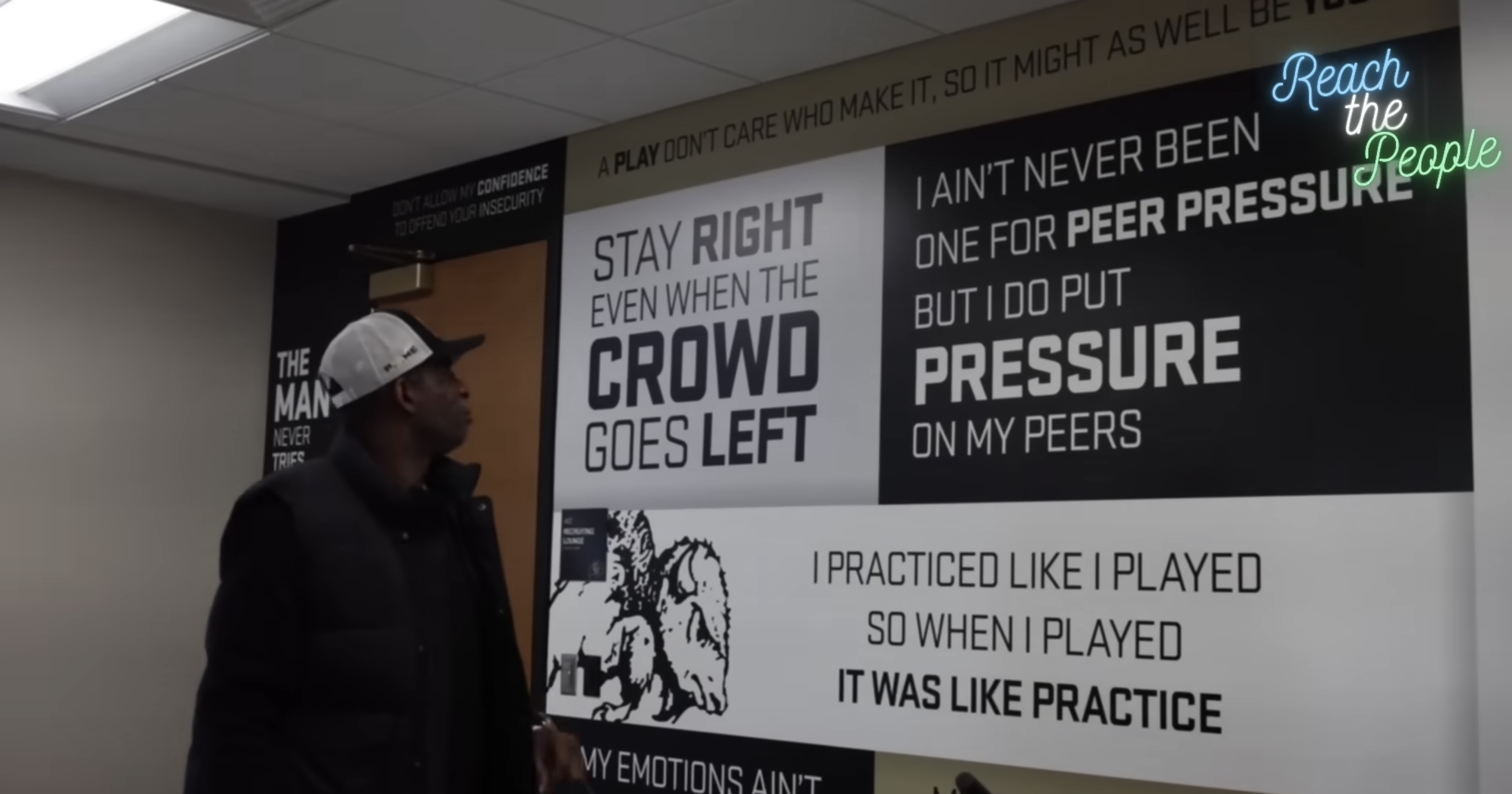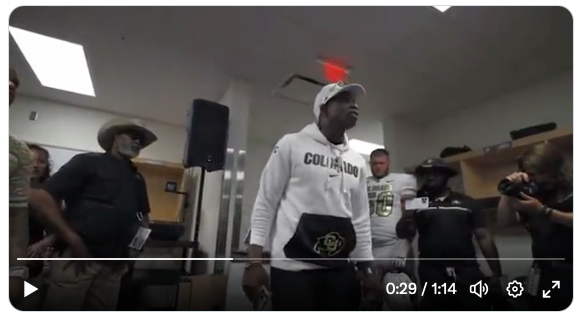The sports world often provides valuable parallels for the business world - the importance of teamwork, shared purpose, and tireless effort towards a goal. But the extraordinary turnaround by first-year coach Deion Sanders and his Colorado Buffaloes deserves attention from business leaders. In a few short months, "Coach Prime" has utterly reinvented CU football by acting decisively, communicating with candor, and aligning people to his vision. His boldness and clarity of purpose in reshaping the team offer an inspirational case study for executives guiding their own organizational turnarounds.
Let me be upfront - I'm a lifelong Eagles fan who grew up watching Deion Sanders torment my team during his Cowboys days. For years, I saw him as an ultra-talented but cocky player. But as I've matured, I've gained tremendous respect for what Coach Prime is accomplishing in his first year leading my hometown Colorado Buffaloes. Putting team rivalries aside, seeing him quickly instill a hard-working, no-nonsense culture here in Boulder is inspiring. His bold vision for rapid change has energized players, fans, and alumni. Deion has revived pride in this program; it's palpable. Let's get into what Deion is doing in his first year, and what business can learn from it.
When he took over as head coach, he faced a major challenge - transforming a struggling football program into a winning team. Instead of focusing only on X's and O's, Deion realized he needed to fundamentally change the culture and mindset of the players. His strategy involved several key elements. First, Deion outlined a clear vision and goals for the team, giving them a mission to work towards. He also assembled a top-notch coaching staff, surrounding himself with experienced leaders. Knowing confidence was crucial, Deion instilled belief in the players through motivational slogans and personal attention. He analyzed the roster and strengthened each position through focused training.
Most importantly, Deion inspired the team through passionate speeches about their potential. He made the players believe in themselves and each other. By subscribing to Deion's methodology, the team was able to set their sight on winning. Their historic defeats of TCU and Nebraska demonstrate the power of vision, leadership, confidence, and inspiration.
Deion's strategies parallel several key disciplines promoted by the Scaling Up methodology, the coaching framework I use with business to gain the same results as Deion. In many ways, Deion Sanders implemented the essential pillars of Scaling Up to motivate Colorado to its first victory and likely many more.
Here are the similarities I see:
He Articulated a Clear Vision
What Sanders did was unorthodox. He was crystal clear about building a winning team, and his actions supported his vision. In a recent interview, he said, "I don't care about culture. I don't care. I don't care if they like each other, man. I want to win. I've been on some teams where the quarterback didn't like the received, but they darn sure made harmony when the ball was snapped."
- Deion created a clear vision and goals for the team's success, WINNING.
- In business, this is where The Five Dysfunctions of a Team, by Patrick Lencioni can be applied. In Lencioni's view teams don't achieve Results until they work up the pyramid from Trust > Conflict > Commitment > Accountability... then Results. While he might not care about culture, he is creating culture. Sanders is ok with conflict. Are you? Are your teams openly trusting each other to say what's truly on their minds? Without it, you will never have 100% commitment.
He Built the Leadership Team
- Deion surrounded himself with experienced coaches and identified leaders among the players.
- When growing a business, you must build a strong leadership team. That team, known as "the First Team," will set the pace for the rest of the company. Hire "A players" who exemplify your core values. Ensure everyone in the company aligns with the core values; that's partly how you build a winning culture.
He Found the Right Team Players, and Offloaded the Wrong Ones
Only 10 of the 96 players on the team are from last year's CU Buffs. Sanders said, "I know it's a huge overhaul. But it had to be done."
- Deion focused on improving each player and position to strengthen the overall team. He was quick to remove those who failed to align with the overall vision he set.
- When scaling, strengthen your organizational "roster" by clarifying roles, training people, and implementing processes to set the team up for growth.
He Exudes Confidence
"Don't allow my confidence to offend your insecurities," said Deion Sanders.
- Deion used slogans, visuals, and personal attention to instill confidence and belief in the team. Check out his office wall.
- Business leaders need to inspire confidence in their teams. Celebrate small wins, provide training and coaching, and recognize achievements. Create actions tied to the core values and live those actions; call them out daily.

He Continually Motivates and Inspires
Have you seen his pregame speech before the TCU game? Check it out if you haven't "We here.."
- Deion motivated through inspirational words and speeches.
- Always share your vision. Make sure your actions match your words, and demonstrate alignment daily. Celebrate progress and keep the momentum going.
Deion Sanders motivated Colorado to victory using the same principles behind Scaling Up - clarity of vision, leadership, culture, and inspiration. His people-centric approach will likely be the key to the team's turnaround and season success; we'll see. How might focusing more intently on people and alignment help your company succeed?
Keep scaling!


